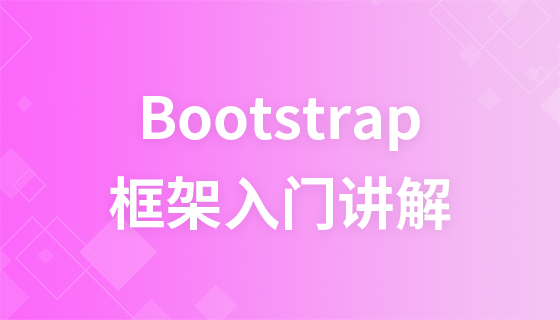
Course5093
Course Introduction:Bootstrap is a simple, intuitive, and powerful front-end development framework that can make web development faster and simpler.
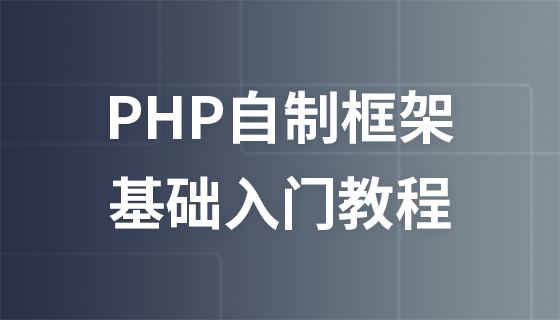
Course3745
Course Introduction:Source code and handouts can be obtained from Q group: 589912610; why you need to make your own PHP framework: 1. Meet specific needs: Each project has different needs and characteristics, and using a general framework may not meet all requirements. Custom frameworks can be tailored to specific needs, providing a more flexible and project-friendly solution. 2. Learn and grow: Custom frameworks are a great opportunity to learn and grow. By developing the framework yourself, you can gain an in-depth understanding of the principles and mechanisms of the framework and improve your understanding and mastery of the underlying technology. 3. Long-term maintenance: Using a custom framework can better grasp the core code of the project, which facilitates long-term maintenance and bug fixing. Not relying on external frameworks also means fewer version migration and dependency issues. 4. Performance optimization: For specific projects, developers can optimize the framework according to the characteristics of the project to make it perform better. 5. Easy to use and maintain: Developers can customize the framework to make it more in line with the team's coding habits, thereby improving development efficiency. At the same time, custom frameworks can also be maintained and upgraded more conveniently. 6. Security: Customizing the framework allows for better control over various parts of the framework and therefore better control over the security of the project. In general, the self-made PHP framework is to better meet the needs of the project, improve development efficiency, facilitate maintenance and upgrades, and improve the security and performance of the project. This series of courses is mainly to achieve learning and growth and meet our specific needs. In other words, to learn the Laravel framework
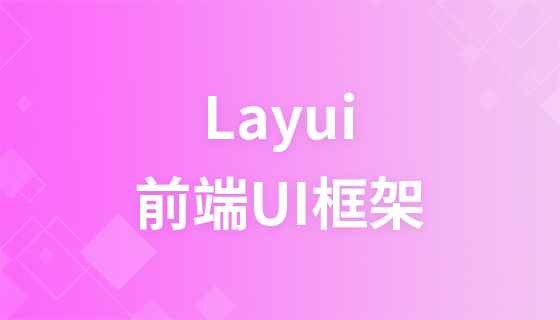
Course24670
Course Introduction:This course will teach you a classic modular front-end framework - layui, which is small in size, rich in components, and ready to use. There is no need to get involved in the complex configuration of various front-end tools. You only need to face the browser itself to achieve everything you want. Required elements and interactions. All in all, it’s easy to learn, great... Come and learn...
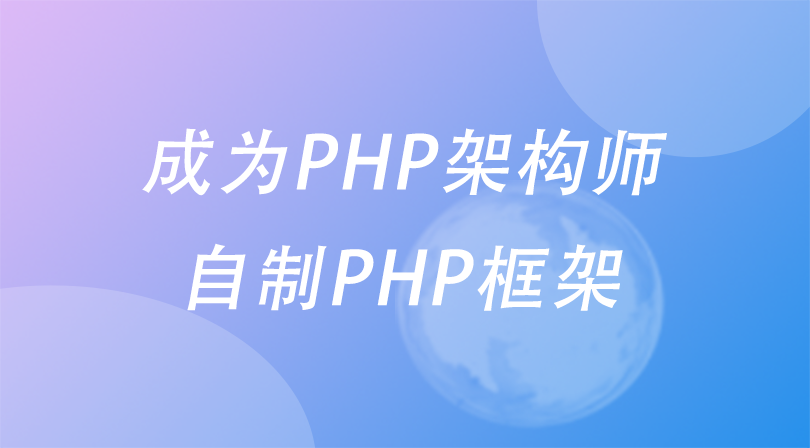
Course4318
Course Introduction:Make your own PHP framework to help you become an architect step by step. Improve the framework step by step, which involves composer, database chain operations, and various excel and pdf tools. As well as scheduled tasks, image processing, image search, command line operations, dependency injection, annotation routing, middleware, aop aspect programming, the use of mysql pessimistic locks, optimistic locks, and various PHP issues such as dealing with high concurrency.
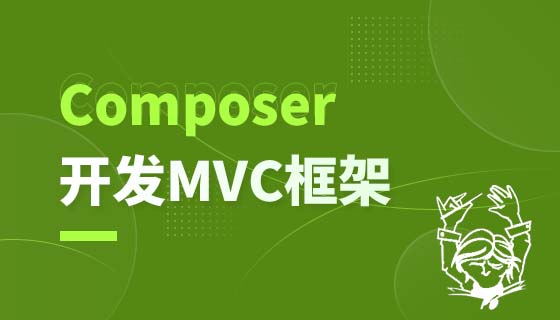
Course2918
Course Introduction:Compser is the most popular PHP package dependency management tool. Similar to NPM, it brings PHP development into the era of component development, greatly improving the efficiency and code quality of PHP project development. This course allows us to stand on the shoulders of giants by using Composer. Quickly build a PHP development framework
Using Laravel 8's blade asset to display images but loading from resources subfolder
2023-11-09 12:47:02 0 1 314
2023-11-07 08:36:55 0 1 243
2023-11-06 21:38:55 0 1 219
EasySwoole framework uses php-amqplib to write rabbitmq and reports memory overflow (paid)
2023-11-07 09:28:29 0 0 106
Framework integration CORS in Laravel version 9
I had to install fruitcake/lara
2023-11-01 16:02:32 0 1 278

Course Introduction:The rpc frameworks include: 1. gRPC, a high-performance, open-source RPC framework developed by Google; 2. Apache Thrift, a cross-language RPC framework developed and open-sourced by Facebook; 3. Apache Dubbo, a high-performance, lightweight RPC framework, suitable for large-scale distributed systems; 4. Apache Axis2, an RPC framework based on Web service standards; 5. Spring Cloud, an open source framework for building distributed systems.
2023-08-03 comment 03368
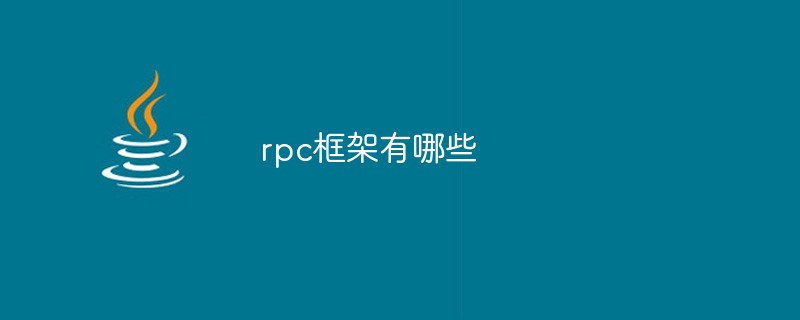
Course Introduction:The rpc frameworks include: 1. RMI, remote method invocation; 2. Hessian, remote method invocation based on HTTP; 3. Dubbo, Taobao's open source RPC framework based on TCP.
2020-10-29 comment 012459

Course Introduction:The go language RPC frameworks include: 1. Go RPC, a framework that comes with the go language standard library, providing simple and convenient RPC method calls; 2. gRPC, a framework developed by Google, which can generate RPC clients in multiple different languages. and server-side code; 3. Micro, a microservice framework based on Go language, provides a powerful RPC toolkit; 4. Thrift, a cross-language framework developed by Apache, also supports Go language; 5. KrakenD, based on Go language API gateway and RPC framework.
2023-07-31 comment 01459
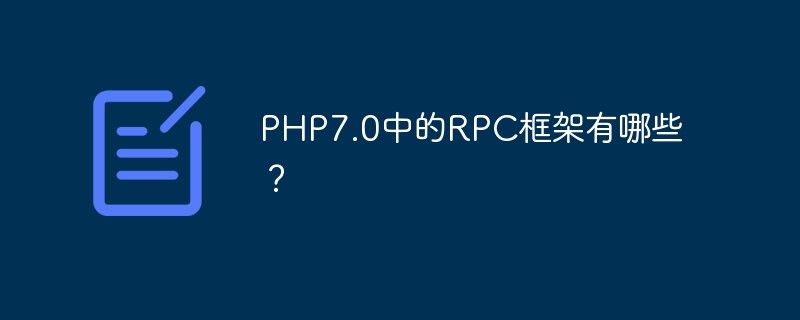
Course Introduction:With the continuous development of computer technology, distributed systems have become mainstream, and remote procedure call (RPC) is an important means to implement distributed systems. As a popular Web programming language, PHP also has its own RPC framework, among which some new RPC frameworks were introduced in PHP7.0 version. This article will introduce the common RPC frameworks and their characteristics in PHP7.0. PHPRemoteProcedureCall(phpRPC)phpRPC is a lightweight RP
2023-05-29 comment 02001

Course Introduction:RPC (RemoteProcedureCall) is an inter-process communication protocol that allows different processes to communicate and collaborate over the network on different physical machines. The RPC framework is attracting more and more attention because it can help developers easily implement the development of distributed systems. In this article, we will introduce step by step how to use PHP to develop RPC framework. 1. What is the RPC framework? The RPC framework is a framework used to implement remote procedure calls. In RPC-based
2023-05-13 comment 01214